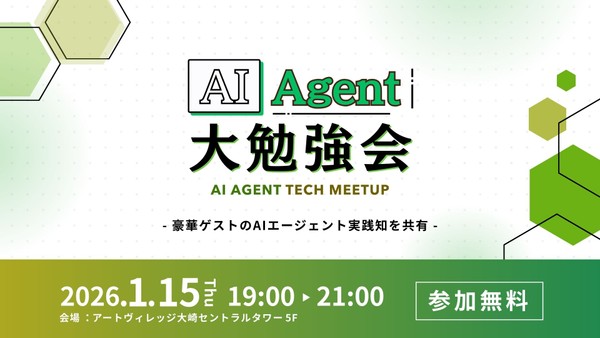スマートエスイーセミナー: 機械学習とIoTのためのソフトウェア工学(テスト、パターンほか)
イベント内容
参加募集: スマートエスイーセミナー: 機械学習とIoTのためのソフトウェア工学(テスト、パターンほか)
2019年9月9日(月)19:00-21:00(予定)早稲田大学 西早稲田キャンパス(参加無料)
セミナーと連動した形で、機械学習アプリケーションの開発・テストのプラクティスに関するアンケート調査を実施しますので、ぜひご協力いただければ幸いです。
プログラム解析や検証、実証研究、ソフトウェアパターン等で著名なFoutse Khomh准教授(Polytechnique Montreal)とYann-Gael Gueheneuc教授(Concordia University)をお招きして、テストやデザインパターンを中心に機械学習およびIoTシステムのためのソフトウェア工学技術に関するセミナーを開催します。講演はすべて英語ですが、質疑は日英のいずれも構いません。
■機械学習アプリケーションの開発・テストのプラクティスhttps://forms.gle/KrDC2CvXpddzbNYp6
共催:
- enPiT-Pro スマートエスイー
- スマートエスイーコンソーシアム
- 早稲田大学グローバルソフトウェアエンジニアリング研究所
- JST未来社会創造事業 高信頼な機械学習応用システムによる価値創造 QAML
概要:
- 日時: 2019年9月9日(月)19:00-21:00(予定)
- 場所: 早稲田大学西早稲田キャンパス62W号館1階大会議室(東京メトロ 副都心線・西早稲田駅、JR山手線・東京メトロ 東西線・西武新宿線 高田馬場駅)https://www.waseda.jp/fsci/access/
- 参加費: 無料
- 参加申込: 本 connpass ページからお申し込みください。
- 問い合わせ: washizaki [at] waseda.jp
プログラム(予定、変更可能性あり):
19:00-19:40 招待講演: DeepEvolution: A Search-Based Testing Approach for Deep Neural Networks
Foutse Khomh (Polytechnique Montreal)
The increasing inclusion of Deep Learning (DL) models in safety-critical systems such as autonomous vehicles have led to the development of multiple model-based DL testing techniques. One key limitation of these approaches is the lack of diversity in their generated test cases, which often results in poor performance. To overcome this limitation, we have developed, DeepEvolution, a novel search-based approach for testing DL models that relies on meta-heuristics to ensure a maximum diversity in generated test cases. We assessed the effectiveness of DeepEvolution in testing computer-vision DL models and found that it significantly increases the neuronal coverage of generated test cases. Moreover, using DeepEvolution, we could successfully find several corner-case behaviors in DL models. DeepEvolution also outperformed Tensorfuzz (a coverage-guided fuzzing tool developed at Google Brain) in detecting latent defects introduced during the quantization of the models. These results suggest that search-based approaches can help build effective testing tools for DL systems.
略歴: Foutse Khomh is Associate Professor at the Polytechnique Montréal (Canada) where he leads the SWAT Lab. on software analytics and cloud engineering research. He is also FRQ-IVADO Research Chair on Software Quality Assurance for Machine Learning Applications. Prior to these positions, he was a Research Fellow at Queen's University (Canada), working with the Software Reengineering Research Group and the NSERC/RIM Industrial Research Chair in Software Engineering of Ultra Large Scale Systems. He received a Ph.D in Computer Science from the University of Montreal, under the supervision of Yann-Gaël Guéhéneuc, with the Award of Excellence. My research interests include software maintenance and evolution, cloud engineering, service-centric software engineering, empirical software engineering, and software analytics.
19:40-20:20 招待講演: The IoT Fragmentation, Issues and Opportunities in Software Engineering Research
Yann-Gael Gueheneuc(Concordia University)
The IoT creates opportunities for many, novel applications. However, it also create issues due to the fragmentation of the hardware and software running (on) the IoT. This fragmentation makes it difficult to integrate the diverse technologies of the various objects found in IoT systems. Diverse technologies induce interoperability issues while designing and developing various services and applications, hence, limiting the possibility of reusing the data, more specifically, the software (including frameworks, firmware, APIs, user interfaces) as well as of facing issues, like security threats, when developing new applications. Various objects have different capabilities in terms of memory, processing power, and connectivity. In this presentation, we highlight issues due to the lack of interoperability among technologies developed for IoT systems. We also provide guidelines for researchers and practitioners developing IoT systems for new applications. Within the Evidence-based Software Engineering paradigm, we report a SLR of both IoT interoperability issues and the state-of-practice of IoT technologies in the industry, highlighting the integration challenges related to the IoT. We also introduce a possible research avenue to solve these issues through the miniaturization of software systems running (on) the IoT systems. Software miniaturization promises that developers could ``write once and run everywhere'' their software, shielding them from the IoT fragmentation.
略歴: Yann-Gael Gueheneuc is full professor at the Department of Computer Science and Software Engineering of Concordia University since 2017, where he leads the Ptidej team on evaluating and enhancing the quality of the software systems, focusing on the Internet of Things and researching new theories, methods, and tools to understand, evaluate, and improve the development, release, testing, and security of such systems. Prior, he was faculty member at Polytechnique Montréal and Université de Montréal, where he started as assistant professor in 2003. In 2014, he was awarded the NSERC Research Chair Tier II on Patterns in Mixed-language Systems.

20:20-20:50 講演: Landscape of Architecture and Design Patterns in IoT systems and ML systems
鷲崎 弘宜 (早稲田大学 / NII / システム情報 / エクスモーション)
本講演では、IoTシステムおよび機械学習応用システムの設計に頻出するアーキテクチャパターンおよびデザインパターンを分類整理し、全体の傾向を概観するとともに今後の展望を探ります。例えば、IoTシステムの設計においてIoTによらない一般的なアーキテクチャ・デザインパターンの利用が多いことや、特定ドメイン向けのIoTアーキテクチャパターンが多数ある一方でIoTデザインパターンはドメインによらないことなどを明らかとしています(Landscape of IoT Patterns として初期調査結果を発表済み, SERP4IoT'19)。また機械学習システムのパターンについては、JST未来社会 QAMLプロジェクトの一環として別途調査結果をまとめています。
セミナーと連動した形で、機械学習アプリケーションの開発・テストのプラクティスに関するアンケート調査を実施しますので、ぜひご協力いただければ幸いです。 機械学習エンジニアが使用するテスト方法他を検討することを目的とした研究プロジェクトにご協力をお願いします。質問は8つのセクションに分かれています。10-20分程度でお答えいただける内容となっています。2019年9月14日をめどに、全ての質問に答えていただければ幸いです。得られた情報を本調査研究目的以外には利用しません。また個人が特定可能な形で 外部公開することもありません。調査結果は研究プロジェクトにおいて参照され、最終的にセミナーページ等を通じて公開する予定です。
20:40-21:00 全体討論・クロージング
注意事項
※ 掲載タイミングや更新頻度によっては、情報提供元ページの内容と差異が発生しますので予めご了承ください。
※ 最新情報の確認や参加申込手続き、イベントに関するお問い合わせ等は情報提供元ページにてお願いします。
新規会員登録
このイベントに申し込むには会員登録が必要です。
アカウント登録済みの方はログインしてください。
※ ソーシャルアカウントで登録するとログインが簡単に行えます。
※ 連携したソーシャルアカウントは、会員登録完了後にいつでも変更できます。
















